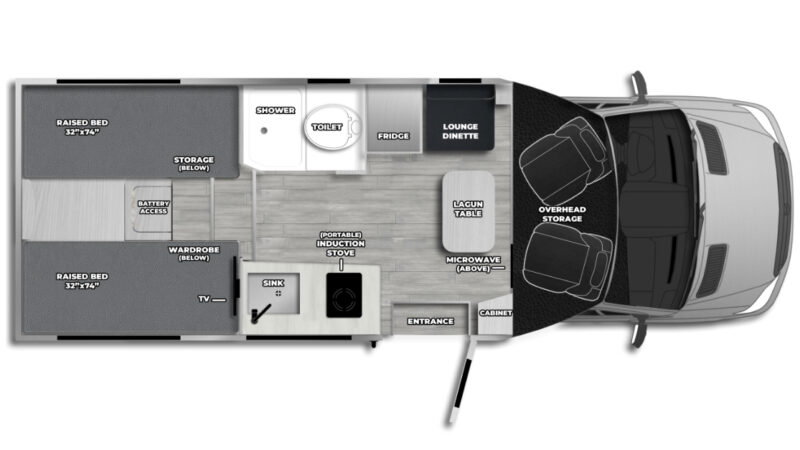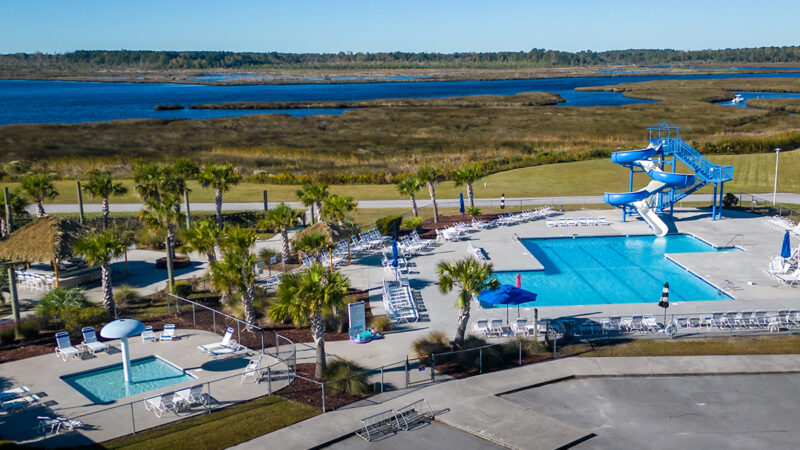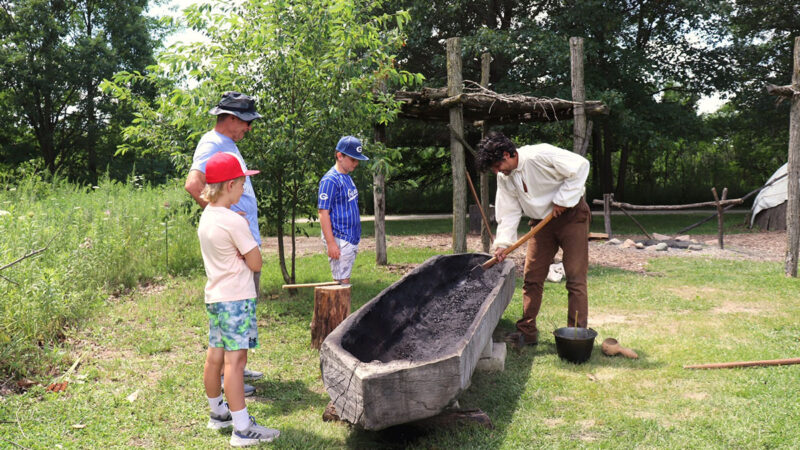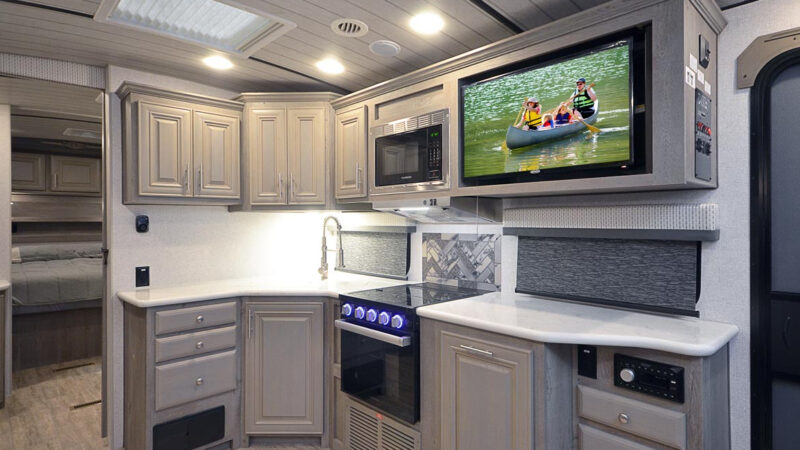10 Great Boondocking Hacks
It’s easy to understand why more and more RVers have adopted boondocking as their preferred method of camping in recent years. After all, it has become increasingly challenging to book a good campsite, and when you are lucky enough to nab a spot, it is often hectic, crowded, and noisy.
In contrast, boondocking delivers a more peaceful and quiet experience, delivering plenty of solitude and a deep immersion in nature. But it also brings a new set of challenges that typically aren’t an issue when staying at a traditional campground where power, water, and sewer connections are common. Fortunately, modern RVs are better equipped to accommodate off-grid camping, providing more versatility when it comes to where we can park our rigs.
However, getting started boondocking can be somewhat intimidating, especially for those new to RV camping. If you’re considering giving it a go, we have a few tips and tricks that can help make your experience better. These are our favorite boondocking hacks to make life off-grid so much better.
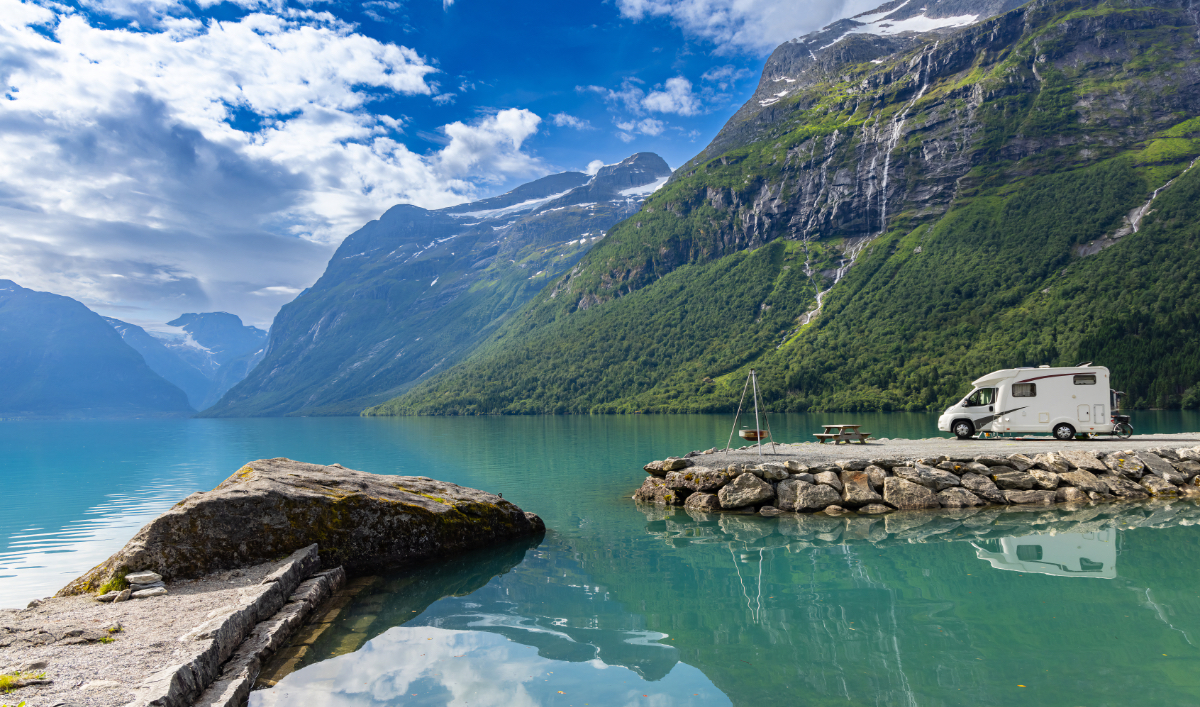
Photo Credit: cookelma/Getty
Bring Extra Water
Freshwater is an essential commodity when boondocking, so learn to conserve it wherever possible. That means not letting faucets run and taking fewer and shorter showers. You can also supplement your RV’s freshwater tank by bringing extra water along. Camping World sells five-gallon water jugs that are an easy and convenient way to add capacity to your vehicle.
Do Your Food Prep Before Leaving Home
One way to conserve water, fuel, and power is to do some or all of your food prep while still at home. Wash your fruits and vegetables, slice up the things you’ll be eating, or cook full meals before you leave. That way, you won’t be using up valuable resources while at the campsite.
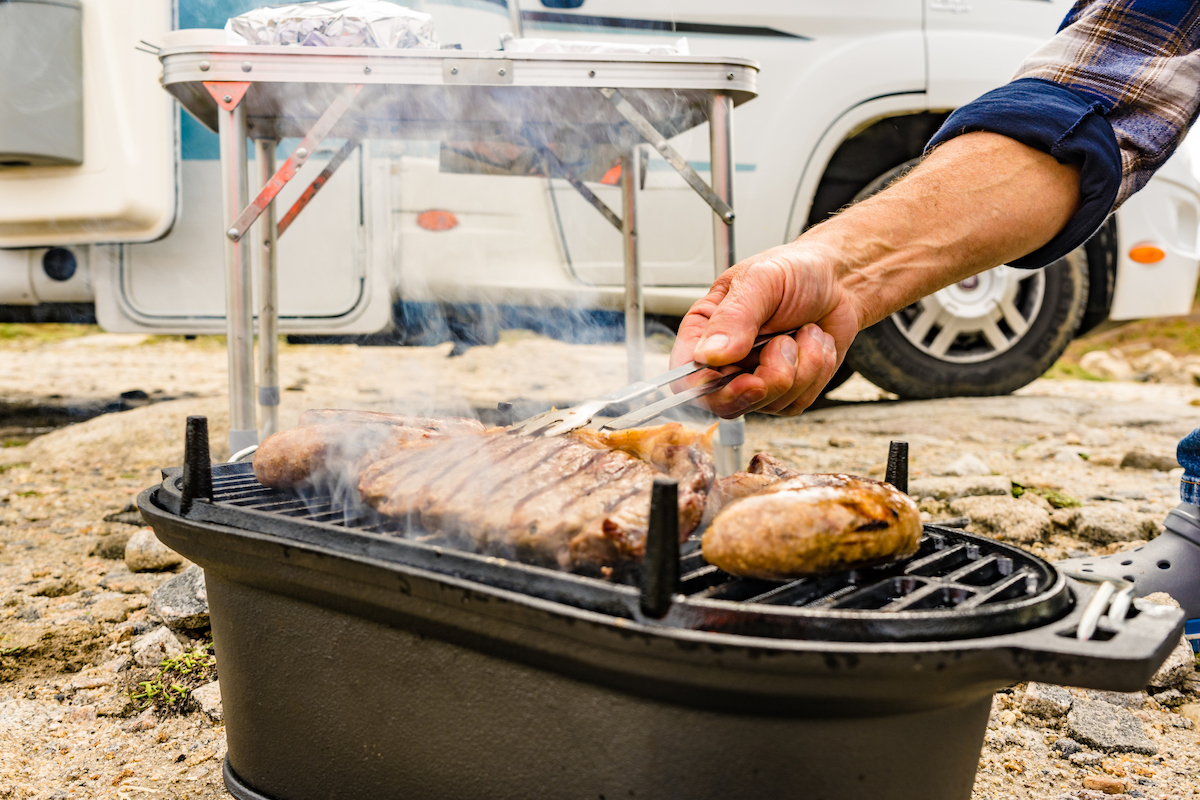
Photo Credit: Anetlanda/Getty
Cook on a Grill
If you select foods that can easily be cooked on a grill, you can reduce the number of pots and pans used to prepare a meal. Using fewer dishes further drops the amount of water you consume, and while a grill won’t tap into your electrical power supply. Gas grills are fast and efficient but require a propane tank that needs to be maintained and filled. On the other hand, cooking over charcoal takes a bit more time, but the fuel source is easy to travel with and simple to obtain.
Wipe Your Dishes with Paper Towels and a Spray Bottle
Another way to save water is to use paper towels and a spray bottle to wipe down your dirty dishes and eating utensils before giving them a proper wash. This removes much of the food remnants and residue before cleaning them with regular soap and water, conserving your precious supply for other needs.
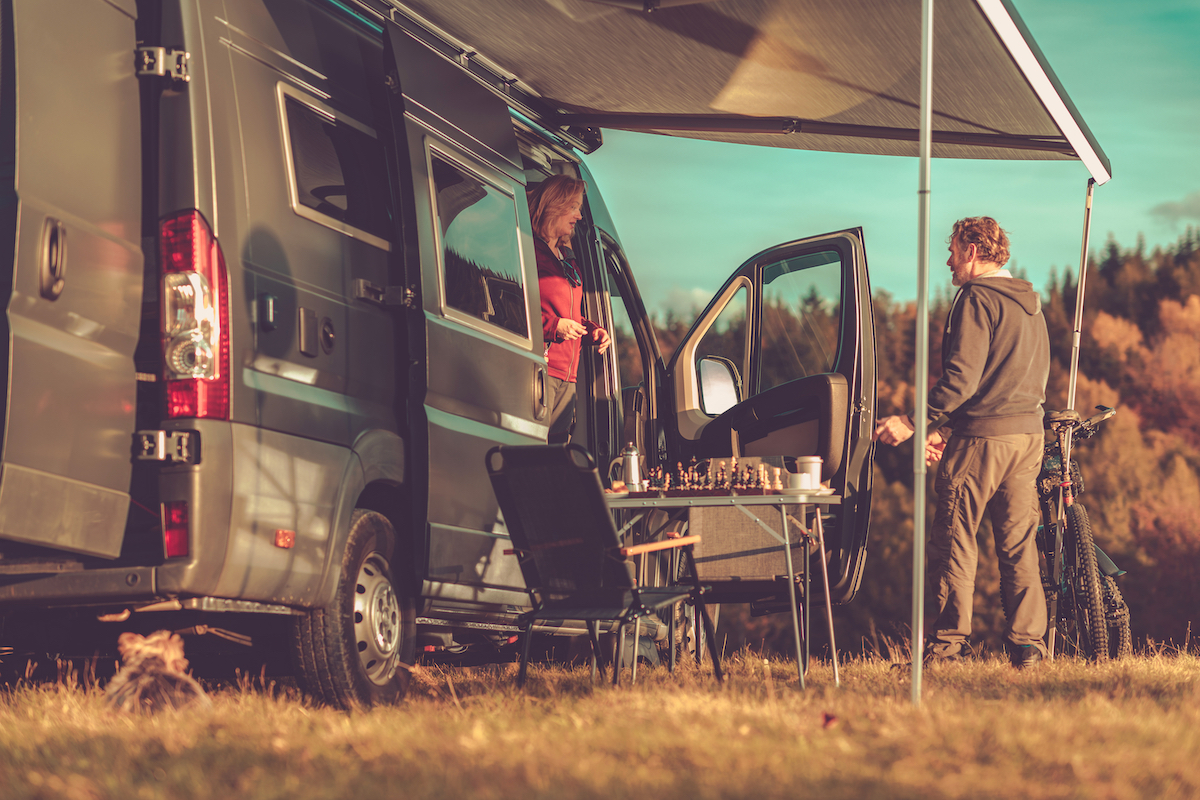
Image Courtesy of Virrage Images/Shutterstock
Use the Campsite to Your Advantage
Selecting a boondocking campsite requires some thought but can provide several significant advantages. For instance, finding a location that offers ample shade will keep the interior of your vehicle cooler, which means you won’t have to run your air conditioner as often. Trees can also serve as a good windbreak, keeping your RV quieter and protecting it from rain and snow. Those natural barriers will keep the vehicle more comfortable and create a boundary from other nearby campers.
Carefully Decide Where to Park
Once you’ve selected a campsite, you will also want to strategically park your vehicle in that space. For instance, if you have roof-mounted solar panels, you may want to park in a position that maximizes their exposure to the sun’s rays. On colder days, you could also want to allow plenty of sunlight into your RV’s interior, helping it stay warmer and more comfortable inside. Conversely, during the warmer months, use shade from nearby trees to block those windows and help keep the interior cooler. Once again, this will reduce the amount of power or gas used to operate appliances, allowing you to camp more efficiently.
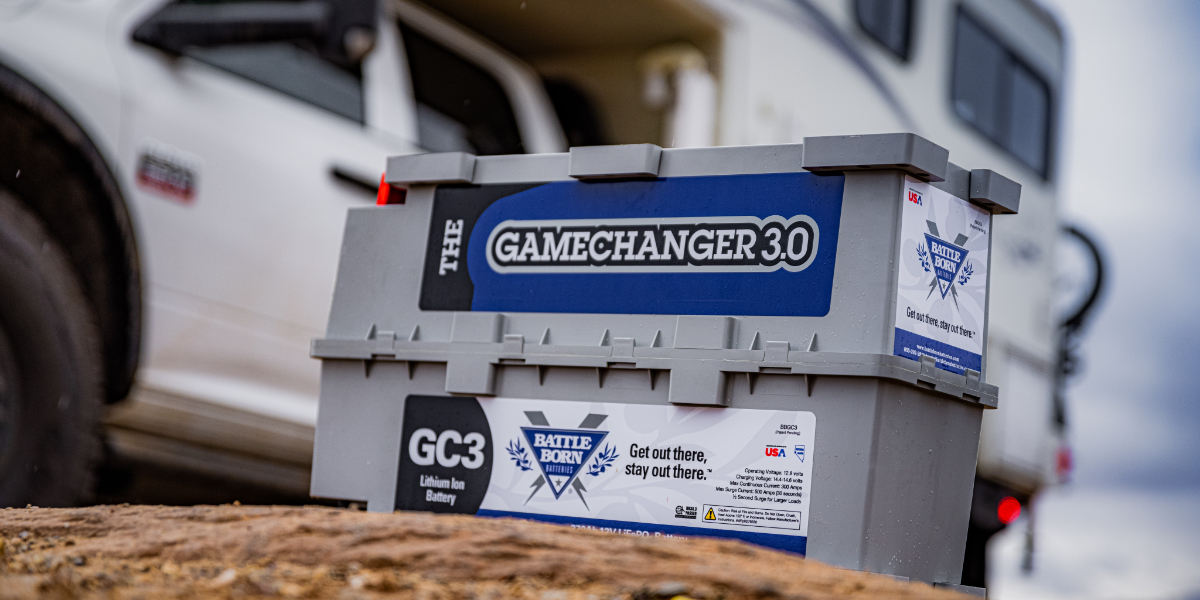
Photo Credit: Battle Born
Upgrade to Lithium House Batteries
Because you aren’t connecting to shore power, keeping your lights, appliances, and other gadgets running can be a challenge while boondocking. Thankfully, RV batteries have gotten much more efficient in recent years, making off-grid camping a lot easier. If you’re using older lead acid house batteries, upgrading to lithium can be a revelation. These types of power cells are more expensive, but they are also lighter, safer and offer much more capacity. Best of all, they also have a much longer lifespan, making them a better value over time. Adding solar panels to the mix can also be a game changer.
Store Food and Trash in a Secure Space
While curious critters can be a problem in a regular campground, your chances of encountering raccoons, possums, or even bears increase dramatically when camping in the wilderness. Usually, those animals are attracted by the smell of food coming from your cooler or trash bin. They do tend to stay away when humans are around but aren’t shy about helping themselves when the opportunity arises. To avoid that, be sure to store those items inside your vehicle at night or whenever you’re not around.
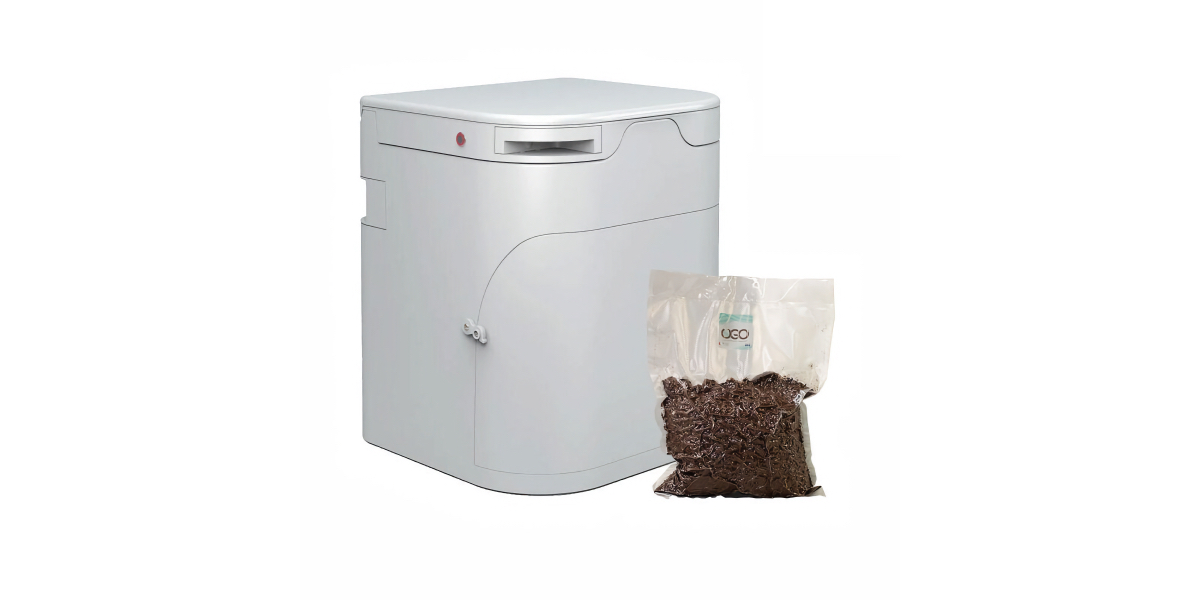
Photo Credit: OGO
Bring a Composting Toilet
A composting toilet eliminates the need to use a blackwater tank, allowing RVers to boondocks longer without visiting a dump station. This type of toilet doesn’t use any water and is designed to separate liquid and solid waste. In doing so, the solid waste breaks down into compost, which is environmentally friendly and easy to dispose of. Permanently switching to a composting toilet even allows you to convert your black tank to gray, providing a major increase in storage capacity.
Use Solar-Powered Gadgets at the Campsite
Solar panels have become more efficient and practical in recent years, making it easier to find useful products powered by nothing more than the sun’s rays. For instance, you can buy solar-powered lanterns, flashlights, Bluetooth speakers, portable chargers, and a wide variety of other devices. Using these gadgets around the campsite is a fun way to have all the functionality you need without tapping into your RV’s power supply. And whenever these items need to recharge, simply place them in the sun.
These are some of our favorite boondocking hacks and tips. As you become more experienced with the practice, you’ll discover more ways to conserve power, water, and fuel, allowing you to comfortably extend your off-grid camping trips. Chances are, after experiencing it for yourself, you won’t want to go back to staying at a crowded campground.
The post 10 Great Boondocking Hacks appeared first on RV.com.
Source: https://www.rv.com/lifestyle-travel/10-great-boondocking-hacks/


